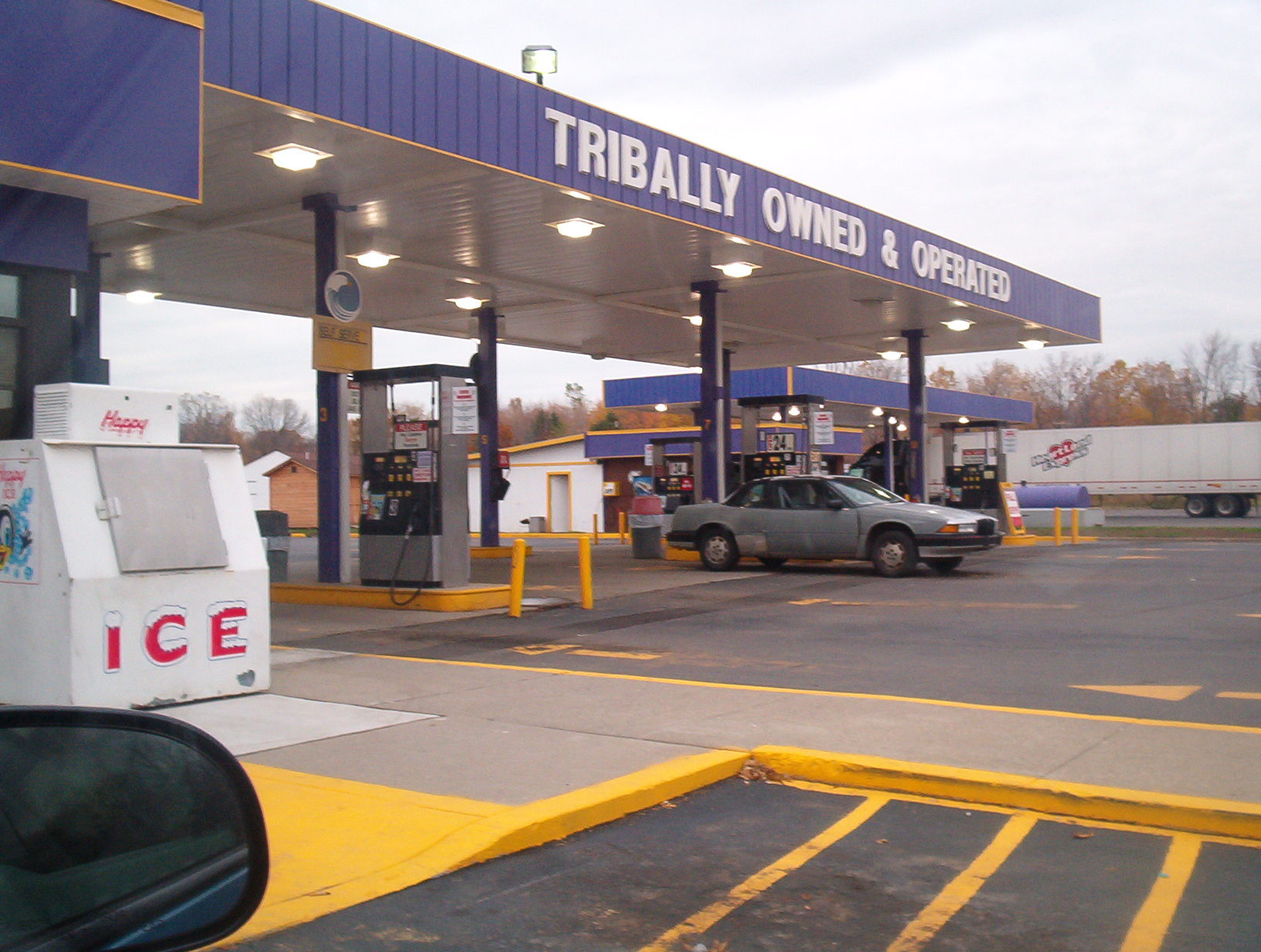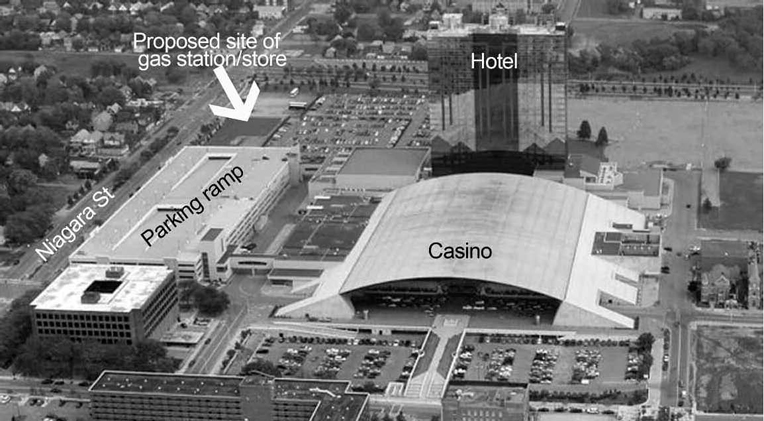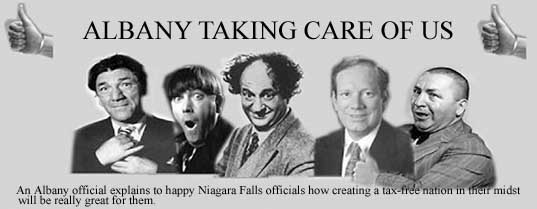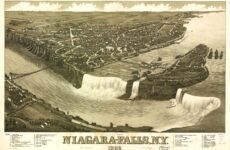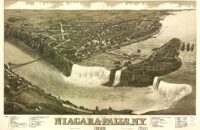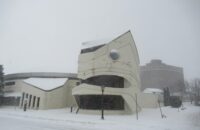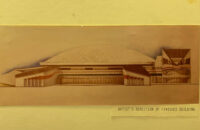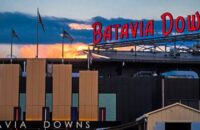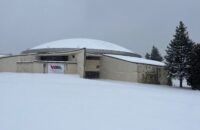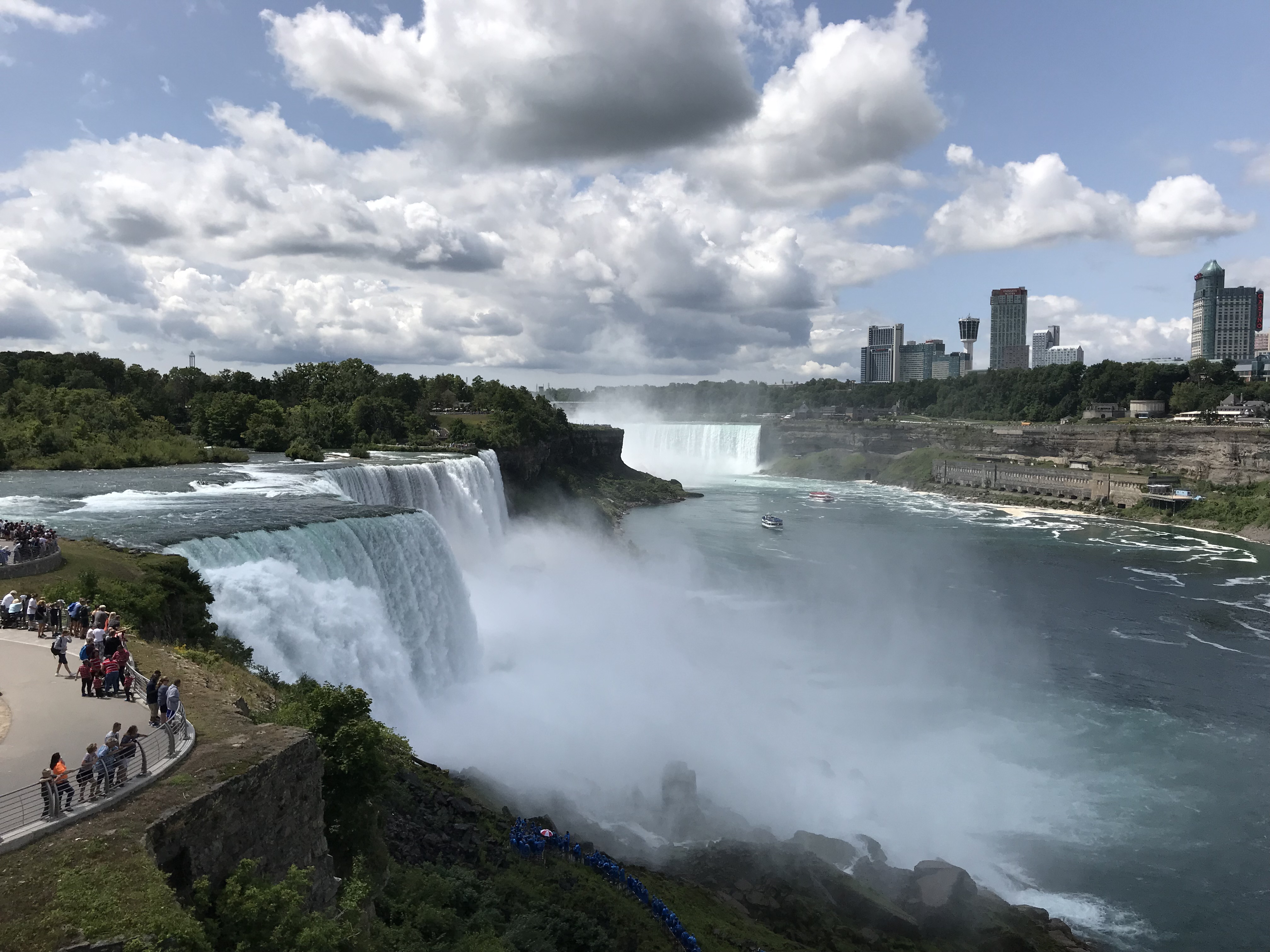The governmental affairs director of the region’s largest business advocacy group, the Niagara USA Chamber, said there is little that can be done legally to prevent the Seneca Nation of Indians from building a tax-free gas station and smoke shop on their downtown Niagara Falls reservation.
Kory Schuler told the Niagara Falls Reporter that action needs to be taken on the state or even federal level.
“The sad thing is that this is sovereign land so this is a federal issue,” he said. “It’s funny that the state hasn’t weighed in yet, which leads me to believe that there are conversations going on that we’re unaware of.”
 Earlier this week, the Chamber issued a strongly worded public statement concerning a plan the Senecas announced to build a 24-bay gas station and smoke shop.
Earlier this week, the Chamber issued a strongly worded public statement concerning a plan the Senecas announced to build a 24-bay gas station and smoke shop.
“While we respect the rights of a sovereign nation, the negative impact that a tax-free gas station would have on local convenience stores, businesses and the City and County would be devastating,” the statement read.
This issue first arose after the 2002 gaming compact was drafted. There were disagreements interpreting the defining language within the compact as to whether this type of development fell within permitted use or not.
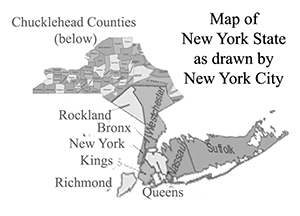
A portion of the compact reads that the Senecas can conduct “any form of Class III Gaming on Nation lands pursuant to this Compact; provided, however, that this Compact shall apply to operation of such enterprise, business or activity only to the extent that such operations are directly related to Class III Gaming undertaken by the Nation pursuant to this Compact.”
Many interpret this language to disallow a gas station on the Seneca land.
“This won’t benefit an already impoverished city,” Schuler told the Reporter. “I know they want to do some development, back in 2002 they had all sorts of plans, but is a gas station and smoke shop the best thing? I don’t think so.”
Convenience store operators, who struggle under the burden of New York State regulation, would also be negatively impacted, Schuler said. There is nearly a five dollar difference in the price of a pack of cigarettes between New York retailers and Native American smoke shops.
While the merits of New York’s tax policy can be debated, local retailers are caught in the middle,” he added. “While they must comply with New York State regulations, their neighbor can conduct business virtually unimpeded by such burdensome regulations and taxes. This is simply unfair.”
The city, already teetering on the edge of bankruptcy, would lose vital sales tax revenue on gasoline and retail purchases at the Senecas tax-free location. As local businesses lose customers to a tax-free gas station, the amount of sales tax revenue paid to the city and county will drop in proportion.
“Unless the state were to compensate the city for this lost revenue the economic hit will be another roadblock to the city’s recovery,” Schuler said.
One thing is certain – the state gifting the Senecas with 50 acres of land in the heart of the city’s tourist district, along with the former convention center for use as a casino, opened up a Pandora’s box of issues, few of which have benefited the people of Niagara Falls in any way.
————————————————
Reporter Predicted Seneca Smoke
Shop, Gas Station Seven Years Ago
By Mike Hudson
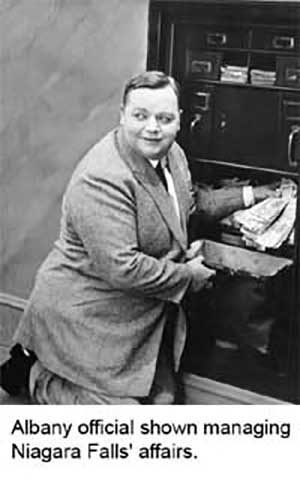 It was back in June 2008 that Frank Parlato, not yet publisher of the Niagara Falls Reporter but writing an op-ed as a concerned downtown businessman, predicted that the Seneca would one day open a gas station, smoke shop and perhaps even a retail mall on the downtown Niagara Falls property they were gifted by the state.
It was back in June 2008 that Frank Parlato, not yet publisher of the Niagara Falls Reporter but writing an op-ed as a concerned downtown businessman, predicted that the Seneca would one day open a gas station, smoke shop and perhaps even a retail mall on the downtown Niagara Falls property they were gifted by the state.
That day has finally arrived.
Last month, The Seneca Nation of Indians confirmed plans to develop its first gas and convenience store on sovereign territory neighboring the Seneca Niagara Resort & Casino in Niagara Falls. Work is expected to start this spring, pending completion of final construction documents and architectural designs. The final development cost will be determined once the design is completed.
The operation is expected to open in June, just in time for the tourist season.
Parlato’s prediction takes on an eerie resonance today.
“Already, Seneca has opened a buffet, a pub, a “high-end” steakhouse, an Italian restaurant, an Asian restaurant, a glamour spa, a conference center, a bistro, a coffee shop, a nightclub, numerous souvenir and gift shops, and a 26-story, 604-room hotel,” Parlato wrote eight years ago. “More stores are coming. A smoke shop is anticipated, and a gas station and a mall.”
In February, Buffalo business First reported that, much like the Seneca Nation’s three other Seneca One Stop locations, the operation will include both traditional gas and electric energy charging stations and a full service convenience store.
Planned for a parcel along Niagara Street between Sixth Street and John Daly Boulevard — formerly Quay Street, the retail operation sits on the Seneca Nation’s 50 acres of Niagara Falls sovereign territory. The land is largely vacant and near where a now-demolished Pizza Hut restaurant once stood.
“Determining the future use and development of our sovereign lands is the right and responsibility of the Seneca Nation,” said Maurice John Sr., Seneca Nation president. “This project is in keeping with those sovereign rights as recognized by the federal government. Furthermore, we believe it can be a catalyst for additional development along the Niagara Street corridor.”
In 2012, the state stepped in to stop a similar project.
At that time, Howard B. Glaser, director of state operations and senior policy adviser to the governor, in a letter to then-Seneca President Robert Odawi Porter, cited a “competitive disadvantage” and said he shared the community’s deep concern about the potential impact a gas station and convenience store would have on small businesses in the area.
But the current Seneca leadership asserts that their activities are not governed by the state.
Earlier this week, the Niagara USA Chamber issued a strongly worded letter opposing the Seneca development (see related story), which it said would devastate private gas stations, convenience stores and the sales tax base of the city.
Kory Schuler, governmental affairs director for the organization, told the Reporter that the difference in cost between a pack of cigarettes bought on the reservation and one bought from a non-Indian retailer in the city is nearly five dollars.
Native American smoke shops no longer carry name brand cigarettes such as Marlboros, Camels or Winstons, instead selling cigarettes manufactured on the reservations. Given the huge difference in price though, most smokers can’t tell the difference.

